Emergency Dentist Springfield
Dental Expertise When You Need It Most
No one ever plans to have a toothache or deal with a knocked-out tooth. These kinds of dental issues always seemingly come out of nowhere and never occur during regular business hours. Dr. Gramse understands that life is unpredictable, and if you’re experiencing dental pain, the last thing you want to do is wait. That is why, as an emergency dentist in Springfield, she’s happy to offer immediate help to patients who need it right away. If you or a loved one is hurting, just give us a call, and we’ll do everything we can to get you in as soon as possible.
Why Choose Dr. Laura Gramse Family Dental Care for Emergency Dentistry?
- Same-Day, After Hours, & Weekend Emergency Appointments
- Emergency Dentist with 25+ Years of Experience
- Convenient Dental Office Locations in Springfield & Palmer
How We Treat Dental Emergencies

- Initial Call: You can call us any time if you have a dental emergency, and a team member will walk you through what to do. This could include going over first-aid to help with immediate symptoms, and they will also help you get scheduled in the office right away if necessary.
- Emergency Exam: Once you arrive, we’ll perform a visual exam and take X-rays so we can determine the exact source and scope of your emergency.
- Treatment Proposal: We’ll share our findings, discuss your treatment options, and alleviate your current pain so that you can choose the approach that best works for you.
- Application: Any treatments you’ve agreed to will be performed, and we’ll schedule a follow-up visit so we can provide further repairs if needed.
The Most Common Dental Emergencies
While many situations can be labeled as a “dental emergency,” below are just a few examples of some we frequently treat. Of course, we recommend giving us a call if you even suspect you have an urgent dental problem—always better to be safe than sorry when it comes to your teeth!
Understanding the Cost of Emergency Dentistry
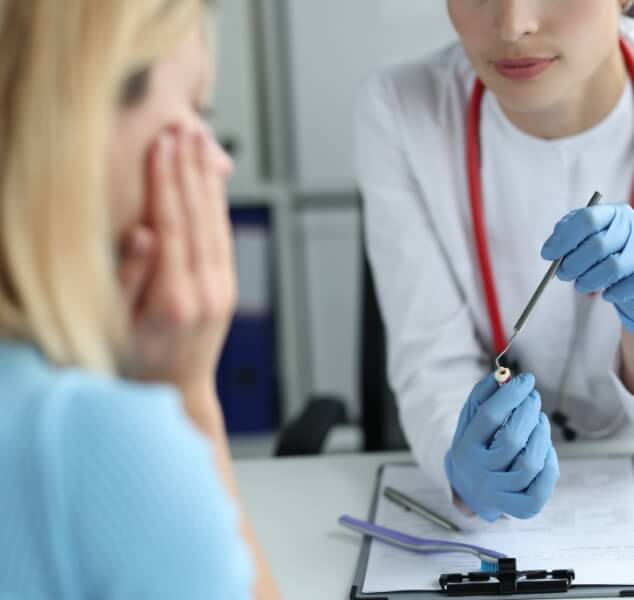
If you’re feeling nervous about the cost of your dental emergency, we understand. The price tag of any kind of procedure is something you must take into consideration, but it shouldn’t keep you from receiving treatment. To ensure it doesn’t, our friendly, compassionate, and experienced team goes the extra mile to make understanding and navigating the financial side of your treatment easy. So, don’t hesitate to schedule an appointment – we are here to help! If you want to learn more on the topic of price in the meantime, you can also read on.
Why Every Dental Emergency is Different
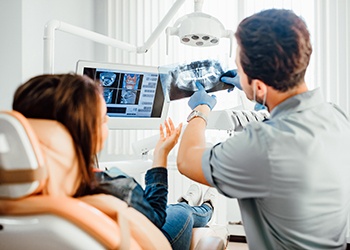
Patients sometimes assume that the cost of emergency dentistry is the same across the board. That’s not the case because we need to consider the dental injury, the extent of the damage, and the restorative care that’s needed. At your appointment, we will learn about your symptoms, take the necessary X-rays, conduct a comprehensive oral exam, and review your treatment options. From there, we will help you make a decision, solidify the details of your treatment plan, and provide you with an estimate of the cost.
Does Dental Insurance Cover Dental Emergencies?
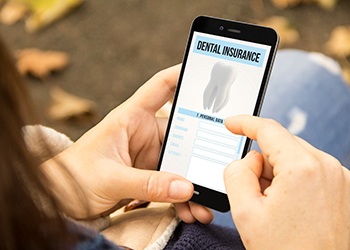
Some dental plans include benefits that help make the cost of emergency dentistry more affordable, like a complimentary exam. Many also cover between 50% and 80% of the cost of essential restorative care, like a dental filling or crown. Since waiting periods, annual maximums, and yearly deductibles need to be considered, it can be tricky to understand your coverage at times. That’s where we come in! We can review the fine print, work to maximize your benefits, and handle the paperwork for you so the entire process isn’t stressful in any way.
How Taking Care Of Your Smile Can Save You Money

Sometimes, patients try to put off scheduling an appointment with us in an effort to save money. This usually has the opposite effect because, the longer you wait, the worse the root of the problem will get. So, don’t wait; give us a call when you first notice that something is wrong.
It’s also worth noting that good oral hygiene habits, like brushing and flossing consistently, reduce your risk of common dental injuries. So, make sure to take good care of your teeth at home, to break bad habits, like biting your nails, and to visit us every six months for a dental checkup and cleaning.
Keys to Preventing Dental Emergencies
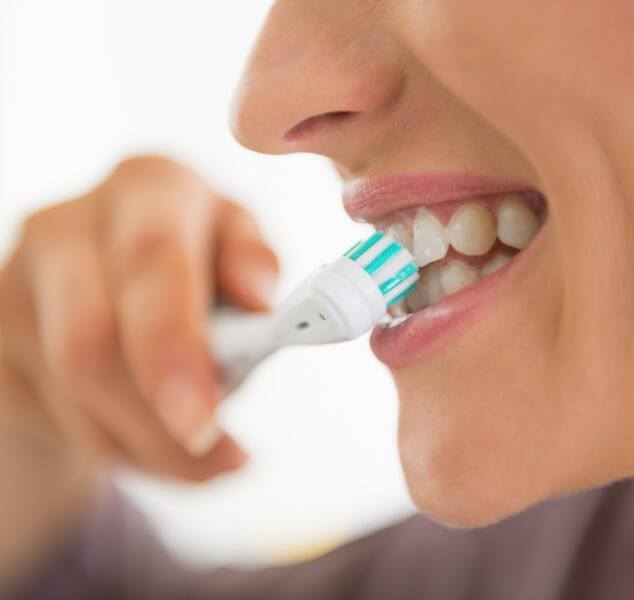
If you are struggling with a toothache, there is a pimple-like bump on your gums, or you’ve knocked out a tooth, you can have peace of mind knowing you can turn to our Springfield dental team for help. That said, the ideal scenario is to not deal with dental emergencies at all. Fortunately, you can take a few steps to help yourself (and your loved ones) avoid them, like:
Committing to Good Oral Hygiene Habits
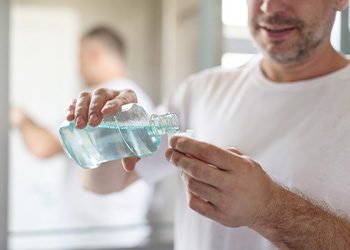
Simply put, daily brushing and flossing are the best things you can do to keep your teeth and gums healthy. So, if you aren’t already, make sure that you’re brushing for two full minutes each morning and evening as well as flossing every night before you go to bed. It’s also important to rinse with an ADA-approved mouthwash for 30-60 seconds, replace your toothbrush every quarter, and avoid using any expired products.
Scheduling a Dental Checkup and Cleaning Twice a Year
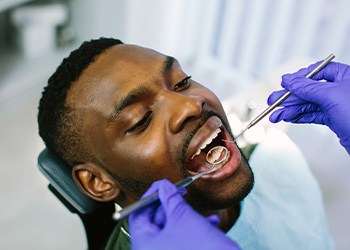
Routine dental checkups are crucial because they ensure we can stop cavities, toothaches, and every dental problem you can imagine before it becomes serious or painful. The cleaning portion of your visit is equally as important because it allows us to remove plaque and tartar, reducing your risk of common oral health problems in the future. In short, if it’s been longer than six months since you’ve visited us, it’s time to get your next appointment on the calendar!
Not Using Your Teeth as Tools

When the scissors are in a different room, you might be tempted to use your teeth to remove plastic wrapping. Don’t! Using your teeth as tools increases your risk of sustaining a serious dental injury considerably. So, use the appropriate tool instead. For the same reason, we don’t recommend biting your nails, chewing on ice cubes, or putting pens or pencils in your mouth.
Avoiding Hard and Sticky Foods

Taffy, peanut brittle, candy canes, and hard pretzels may be delicious, but they can wreak havoc on your oral health. That’s why we recommend avoiding hard and sticky foods entirely. Instead, incorporate foods into your diet that benefit your smile, like fresh fruits and vegetables. Also, drink lots of water throughout the day to stay hydrated. This will help prevent dry mouth while also removing residue and food particles.
Wearing a Mouthguard
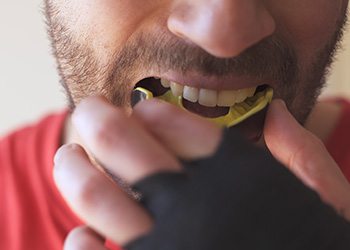
Lastly, make sure you wear a mouthguard during contact and non-contact sports so your teeth and gums are protected from unforeseen impact. It’s also important to wear a nightguard if you grind or clench your teeth. If you don’t have one already, that’s okay – we can have a custom one made for you. That way, it fits comfortably while reducing your risk of chips, cracks, and fractures.
Dental Emergency FAQs
What Does Throbbing Tooth Pain Mean?
Throbbing tooth pain is probably a sign of an infection or inflammation that has reached the delicate pulp tissue at the center of the tooth. This can happen due to large cavities or cracks exposing the pulp the air or the oral environment. When the nerves in the pulp become infected, they will send distress signals to the brain, resulting in pain. However, less severe cases of throbbing tooth pain may be the result of teeth grinding and clenching. If you are experiencing throbbing tooth pain, contact the team at Dr. Laura Gramse’s office so we can address the issue with an appropriate restorative treatment or a customized nightguard.
Will a Toothache Go Away on Its Own?
A toothache may go away on its own depending on what causes it. For example, dental pain caused by gum inflammation may disappear after the soft tissue infection is resolved. However, a severe, throbbing toothache is quite unlikely to go away on its own and is probably caused by an advanced dental infection that requires immediate attention from a qualified dentist such as Dr. Gramse. Having your toothache treated promptly can prevent it from causing serious oral health issues such as tooth loss, dental misalignments, and dangerous secondary infections like sepsis.
How Can I Sleep with a Toothache?
Since the nighttime hours are typically much quieter than those of the daytime, it can be quite difficult to ignore persistent dental pain when you are trying to sleep. Fortunately, there are a few effective home remedies that can help you get some shuteye before calling our office in the morning to schedule an emergency appointment. A few methods to try include:
- Propping your head up with pillows or cushions or sleeping in a recliner. This will allow gravity to reduce the blood pressure in the troubled tooth.
- Taking over-the-counter pain medication.
- Soaking a cotton ball in clove oil and placing it over the troubled tooth. Clove oil is an ancient toothache remedy that has natural anesthetic properties.
Can I Pop a Dental Abscess on My Own?
Popping a dental abscess on your own can expose your infected gum tissue to air and the oral environment, so it’s important to avoid disturbing the infected area. Instead, contact Dr. Gramse’s office so her staff can address the problem in a safe, sanitary, and effective manner. Neglecting to have a dental abscess treated by a qualified professional can lead to tooth loss and potentially dangerous secondary infections.



